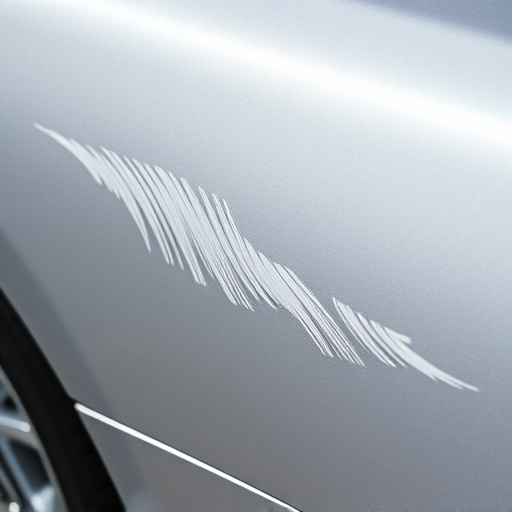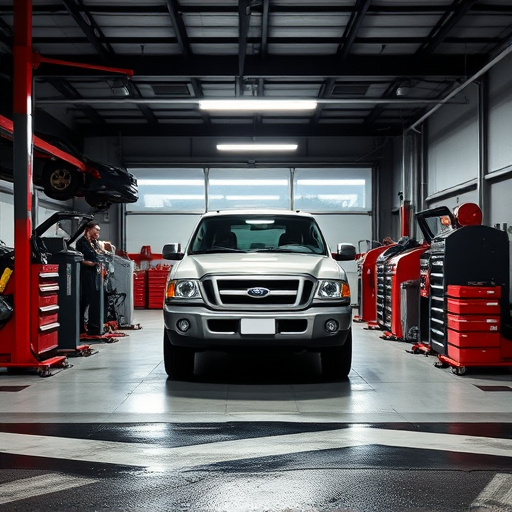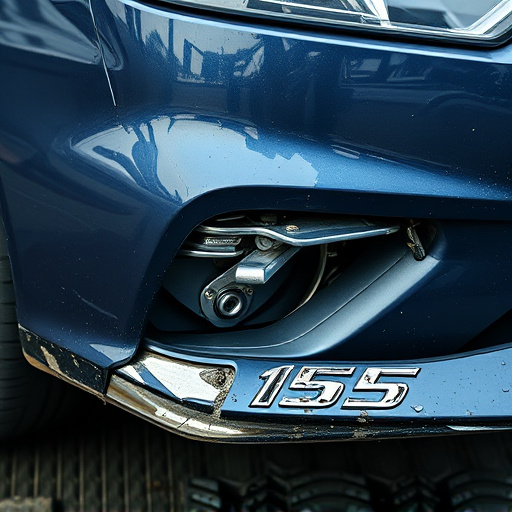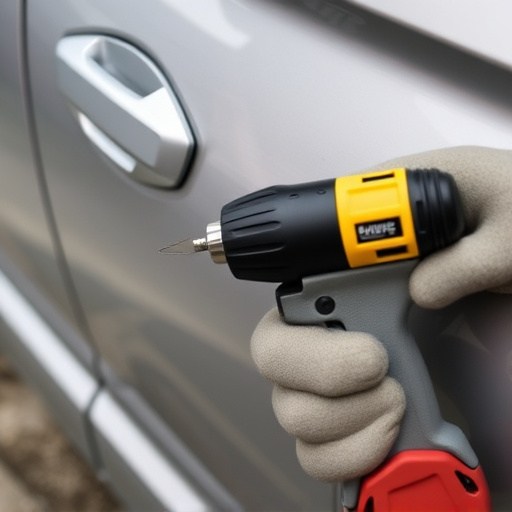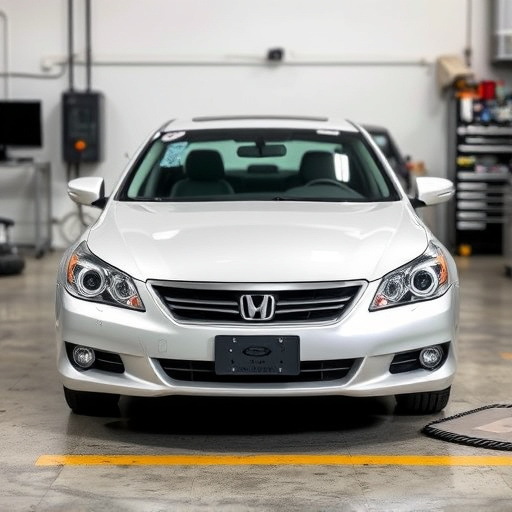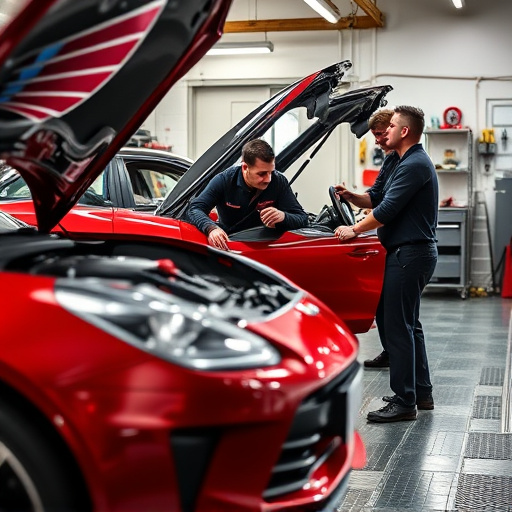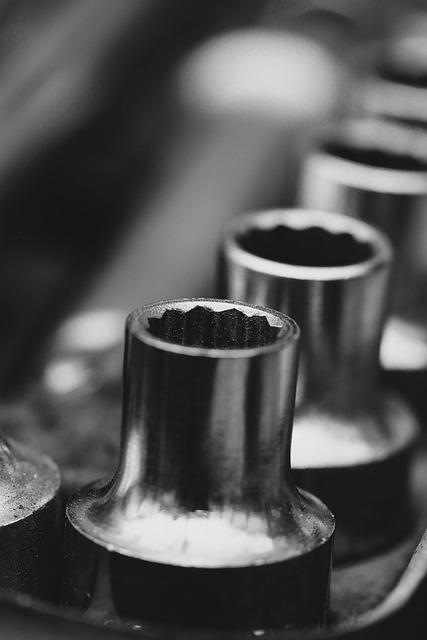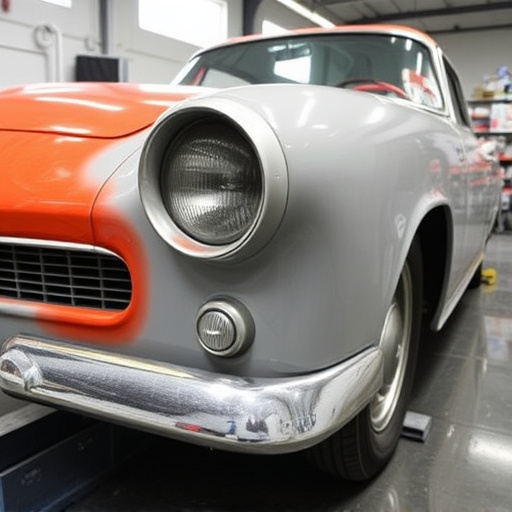Body panel insulation is crucial in electric and hybrid vehicles for noise reduction, energy efficiency, and thermal management. Advanced composites, foams, and coatings offer superior performance, enhancing comfort, fuel efficiency, and structural integrity. Proper selection ensures optimal functionality and preserves vehicle history, combining aesthetics with enhanced performance in luxury and collision repairs.
In the rapidly evolving landscape of automotive technology, hybrid and electric vehicle (EV) models are leading the charge towards sustainability. A critical component in their efficiency and performance is body panel insulation—a key strategy to optimize temperature control, reduce noise, and enhance overall passenger comfort. This article explores the significance of advanced body panel insulation technologies for EVs and hybrids, delving into their key benefits, material choices, and impact on vehicle performance.
- Understanding Body Panel Insulation in EVs and Hybrids
- Key Benefits of Advanced Insulation Technologies
- Material Choices and Their Impact on Vehicle Performance
Understanding Body Panel Insulation in EVs and Hybrids

Body panel insulation in electric vehicles (EVs) and hybrid models plays a pivotal role in enhancing energy efficiency, reducing noise levels, and improving overall passenger comfort. Unlike conventional internal combustion engine vehicles, EVs and hybrids have unique challenges when it comes to vehicle insulation. In an EV or hybrid, the absence of a traditional exhaust system significantly reduces exterior noise pollution. However, these vehicles often rely on electric motors, which can generate substantial internal noise, especially during high-speed driving. Effective body panel insulation is crucial in mitigating this issue by blocking or absorbing sound waves, ensuring a quieter cabin environment for occupants.
Moreover, the focus on lightweight materials and structural integrity in car paint repair and vehicle bodywork for EVs and hybrids necessitates careful consideration of insulation. In collision repair shops, professionals must balance the art of body panel replacement with the science of insulation to maintain the vehicle’s energy-saving properties. By strategically incorporating insulating materials into the body panels, these vehicles can achieve optimal thermal management, preventing excessive heating or cooling losses. This not only contributes to extended battery life but also enhances the overall driving experience in both performance and comfort.
Key Benefits of Advanced Insulation Technologies

Advanced insulation technologies offer a multitude of benefits for hybrid and electric vehicle models, enhancing both performance and sustainability. By effectively managing heat transfer, these innovations ensure optimal battery performance and range, two critical factors for EV and HEV owners. The lightweight nature of modern insulation materials also contributes to improved fuel efficiency and reduced overall weight, addressing key environmental concerns.
Moreover, body panel insulation plays a crucial role in passenger comfort by minimizing noise and vibrations, creating a quieter, more serene driving experience. This is particularly important as electric vehicles gain popularity, as their lack of internal combustion engines can initially result in a noiseless ride that may feel unusual to some drivers. Effective insulation also supports the integrity of auto glass replacement and car body repair processes, ensuring structural stability and enhanced safety features over the vehicle’s lifespan, which is essential for any auto maintenance routine.
Material Choices and Their Impact on Vehicle Performance

Choosing the right materials for body panel insulation is paramount in hybrid and electric vehicles (HEVs). These vehicles demand a unique approach to thermal management due to their advanced powertrains. Traditional insulation options may not be optimal, as they can add significant weight or compromise structural integrity. Therefore, manufacturers are turning to innovative materials that offer superior heat retention while maintaining vehicle lightweighting goals crucial for HEV efficiency.
High-performance body panel insulation in luxury vehicle repair and automotive collision repair applications often incorporates advanced composites, foams, and specialized coatings. These materials not only insulate but also contribute to enhanced soundproofing, reducing interior noise levels. In car body restoration projects, carefully selected insulation ensures optimal performance while preserving the vehicle’s historical character, demonstrating that top-tier body panel insulation enhances both functionality and aesthetics in HEVs.
Body panel insulation plays a pivotal role in enhancing the performance and efficiency of hybrid and electric vehicles (EVs). By understanding its significance, we can appreciate the key benefits it offers, such as improved energy efficiency, reduced noise levels, and enhanced passenger comfort. The choice of advanced insulation materials is crucial, impacting both vehicle weight and overall sustainability. As the EV market continues to grow, investing in innovative body panel insulation technologies will be essential for automakers to deliver quieter, more efficient rides that meet evolving consumer demands.

